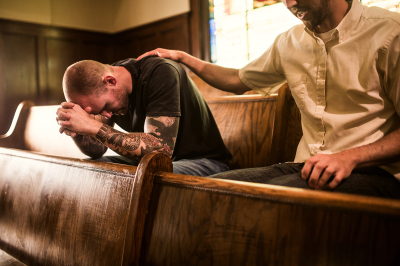How to balance forgiveness and trust

The weight of offense that the average person is carrying today, especially if you are active on social media, is remarkable. The weight that the average pastor or ministry leader carries today is beyond reason compared to generations past.
It is not good to allow people to infringe on the healthy boundaries God intends for us to have in real relationships. I heard recently that the average person loses seven significant relationships in their lifetimes while a pastor loses that many each year.
How do we navigate these waters? How do we find a balance between forgiveness and trust? Unfortunately, these two words get misused at times in relationships, especially by the one who is causing the offense. Certainly, we live in a world where our skin has to get tougher, but how do we maintain tougher skin without giving way to that same toughness causing our hearts to grow cold, calloused, and indifferent to those we should trust?
I think it is important to remember this:
Forgiveness is a given.
Trust is a gift.
God requires forgiveness.
Trust is the most precious gift God gave us to share with Him and those we trust in our human relationships.
It is important not to confuse the two as you wrestle with conflict and offense in relationships.
1 Corinthians 13 in the Message Bible says, “Love doesn’t force itself on others.”
Don’t ever give in to someone demanding you trust them. Let no one demand your trust, otherwise, it is coercion which is not trust at all. Trust is built over time and sadly lost sometimes in a day. When someone shows you who they are, believe them, and forgive them, but God does not require you to trust them. Forgiveness is from God through you to others. Trust is from you observing and being in relationship with them.
Forgiveness by nature is a willingness to hold loosely how the person you are forgiving responds. True forgiveness requires self-control. So, forgiveness, true forgiveness that originates from the fruit of the Spirit, will in turn produce that same fruit externally in relationships. Humility is always at the core of forgiveness, but don’t confuse humility with softness or the inability to stand your ground in conflict with another.
Humility is a willingness to recognize you can’t do something apart from Christ. But once you have activated this mindset through holy actions, courage will always be the result and peace will always be the by-product. Courage gives you the ability to wait, let go, and trust the Lord to work in the other person. Peace gives you the ability to lay it down, open your hands, and know it ultimately is not up to you or the other person. Collectively, the two of you must seek the Lord and each do what He is telling you to do. This then produces the fruit of the Spirit that enables you over time to restore trust. Trust is simply the willingness to say, I see God’s hand in your life. I see your willingness to follow God’s lead in your life and thus I trust my life back into your hands because I trust Christ who is leading you.
While you work on a broken relationship, don’t quit trusting others who have earned the right to be trusted in your life because some have misused your trust.
Forgive everyone.
Trust the trustworthy.
But never let the one who broke your trust demand you restore it at their pace. Remember, those who truly love you don’t force themselves on you. They wait until you are ready. They understand their need to regain your trust with time through humility.
Kelly Williams is co-founder and senior pastor of Vanguard Church in Colorado Springs, Colorado. His books include: The Good Pastor, The Mystery of 23, Friend of Sinners and Real Marriage. He also maintains a blog.




























